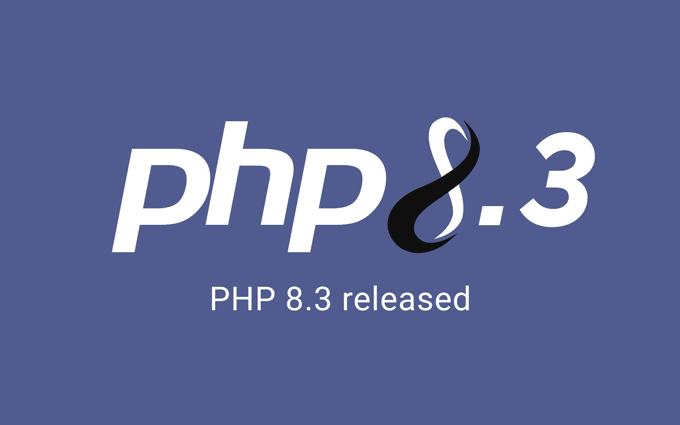
May 06, 2025
Exploring PHP 8.3: What’s New and How to Use It in Your Projects
Developers who work with PHP have to keep up with how the language changes. There are some cool new features and changes in PHP 8.3 that might make your code better, faster, and more useful. The PHP version you're currently using might be out of date, so you might want to update. That's why, I'm going to talk about the best things about PHP 8.3 and how you can use them right away in this post.
New Features in PHP 8.3
Two new features in PHP 8.3 will make coding easier and change the game.
Readonly Classes
PHP 8.3 permits readonly class declarations. This means you cannot change class properties after creating an instance. It ensures stability and simplifies code reasoning. Think of it as protecting your objects. Now let's see how it works:
readonly class User {
public string $name;
public int $age;
}
$user = new User();
$user->name = "John Doe";
$user->age = 30;
// Attempting to modify properties after initialization will throw an error
$user->name = "Jane Doe"; // Error: Cannot modify readonly property
This functionality is a huge gain for developers building more secure apps.
Array Unpacking with String Keys
Unpacking arrays with string keys is another fascinating PHP 8.3 innovation. Now you may unpack associative arrays instead of numeric ones. This allows cleaner, more intuitive array merging.
$array1 = ['name' => 'John', 'age' => 30];
$array2 = ['city' => 'New York'];
$merged = [...$array1, ...$array2]; // Merges arrays with string keys
print_r($merged);Complex data structures benefit greatly from the unpacking operator's ability to combine associative arrays.
Discontinued Features and Backward Compatibility
There are some tools that are no longer needed in each version of PHP. PHP 8.3 is the same. Make these changes before you upgrade to keep things running smoothly.
Discontinued Functions and Extensions
Some functions and extensions are no longer supported in PHP 8.3. The ext-mbstring extension has changed, and you should not use a few of its methods anymore. If you need older functions, see the PHP handbook for replacements.
To prevent PHP version concerns, use the latest, safe approaches.
Backward Compatibility Breaks
PHP 8.3 breaks backward compatibility, which may affect older apps. Internal behavior might be changed. PHP developers should thoroughly test their already made apps before advancing to PHP 8.3. Get ready to rebuild or change code to add new features.
Performance Enhancements in PHP 8.3
As a great advancement in language, PHP 8.3 speeds things up and adds new features. This version has improvements to the JIT (Just-in-Time) engine and memory management that make applications run faster and more efficiently.
Improved JIT Compiler
PHP 8.3 optimizes the JIT compiler, speeding up certain workloads. PHP 8.3 performs better than earlier versions for data-intensive applications. This reduces server load and speeds user response.
This small test compares PHP 8.2 and PHP 8.3 execution times:
// Simple example to show performance boost
$start_time = microtime(true);
for ($i = 0; $i < 1000000; $i++) {
$a = $i * $i; // Simulating a computation-heavy task
}
$end_time = microtime(true);
echo "Execution time: " . ($end_time - $start_time) . " seconds";
Better Memory Management
Smaller applications use less memory because as you know PHP 8.3 simplifies memory management for heavy applications. People often visit to information-rich websites, and this feature helps such sites. This improves performance when busy.
How to Use PHP 8.3 in Your Projects
Upgrading to PHP 8.3
If you follow best practices, you can easily switch to PHP 8.3. Now it's time to execute your test code to make sure that your project works with the latest version. Most recent frameworks and libraries support PHP 8.3, however you should still test your code.
You may upgrade PHP using Composer or your hosting provider or local environment. Backup your code before updating!
Best Practices for Adopting New Features
Start adding PHP 8.3 features gradually to maximize its benefits. To protect areas of a program from changes, use readonly classes. To make things easier to do, unpack arrays with string names.
Update old code to the latest standards by refactoring it.
Conclusion
Finally, this post has come to an end. PHP 8.3 makes code more clear and faster. This language enhancement is making it easier to code by adding faster code, readonly classes, and string keys for unpacking arrays. So PHP coders, why are you waiting? Get PHP 8.3 now to fix new problems and make sure your apps stay fast, safe, and easy to manage for years to come. Update your projects right now and add these great new features.
731 views
